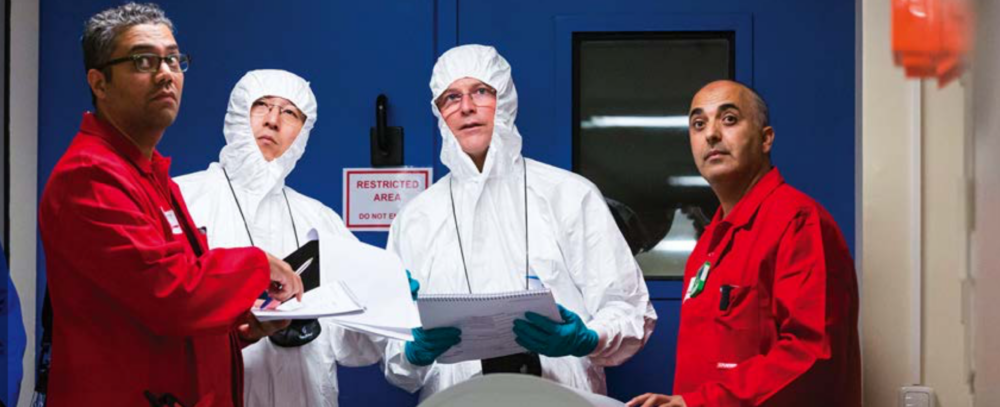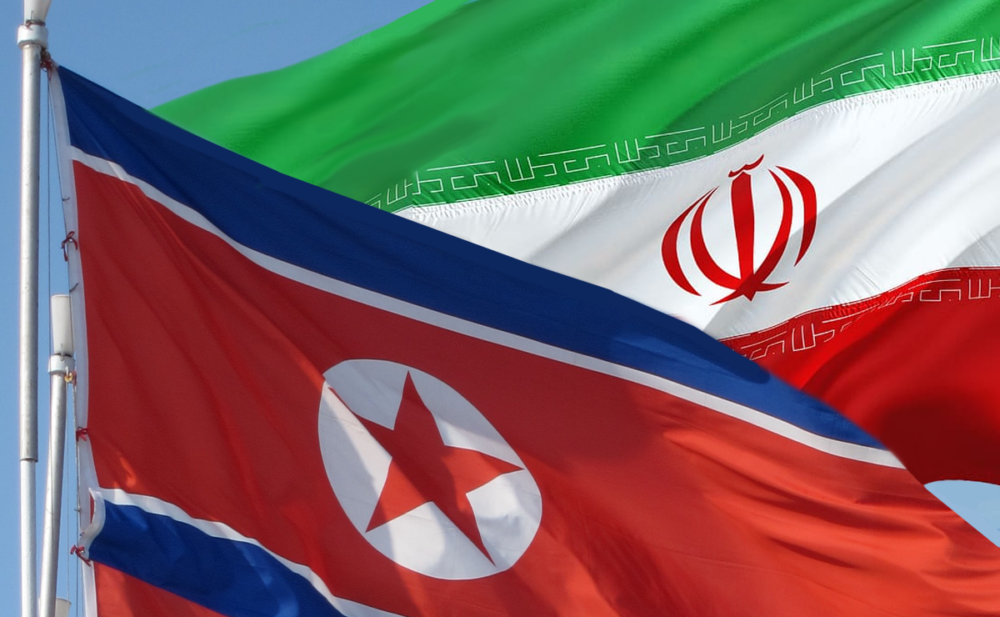
Sam Nunn
Co-Founder and Co-Chair, NTI
At the height of the Cold War, the Soviet Union had thousands of nuclear warheads aimed at American cities, and the Soviets were subject to numerous arms controls agreements. But progress was hard-fought and incremental at best. In an ideal world, the Soviet Union would have agreed to more severe constraints than those agreed by Presidents Kennedy, Nixon, Ford, Carter, Reagan and Bush, for example. It would have dismantled all of its nuclear weapons, stopped its human rights abuses and halted its meddling around the world.
But, as all of these presidents – Democratic and Republican – understood, holding out for the impossible is a recipe for no progress at all. Congress should take the same approach today to the Iran nuclear deal.
We know something about the long history of such agreements. During our combined 60 years in the U.S. Senate, we participated in countless meetings, hearings and trips around the globe focused on reducing the threats posed by weapons of mass destruction. The centerpiece of our efforts was the Nunn-Lugar Act, passed in 1991, which was the basis for two decades of hard work that resulted in the safeguarding and deactivation of more than 7,000 nuclear warheads, hundreds of missiles and bombers, and numerous other elements of the former Soviet Union’s WMD programs.
These experiences underscored for us that arms control agreements are rarely finished absolutes. Inevitably, their success depends on many factors that play out after the agreement is signed, including alliance cohesion, congressional funding for implementation and the political will of the parties to ensure verification and enforcement.
Over the next several weeks, every member of Congress will have the opportunity to weigh the terms of the nuclear agreement against all viable alternatives. In our view, the key questions regarding this agreement are: Will it stop Iran from obtaining a nuclear weapon? What are the risks of going forward with this agreement? And what are the risks if Congress rejects the agreement?
The plus-sides of this deal are clear. It includes severe restrictions on uranium enrichment and plutonium production, required transparency into Iranian activities and inspection provisions to assure the international community that Iran’s nuclear program is, and remains, peaceful. Reports that Iran will simply inspect itself to address unresolved allegations about its nuclear behavior have been refuted by the head of the International Atomic Energy Agency, who has stated that the arrangements are technically sound, consistent with the IAEA's long-established practices and do not compromise IAEA safeguards standards in any way. Importantly, the agreement taken as a whole will help deter Iranian cheating and provide the means to detect violations in time to take strong action if required.
Could we conceive a stronger deal? Of course – that has been true of every arms control negotiation. We have heard critics suggest that Iran would have agreed to entirely dismantle its nuclear enrichment facilities and stop all activities related to its civil nuclear program if only the U.S. had been tougher in negotiations. But had the U.S. taken such an approach in the early 1990s, we would not have encouraged and helped Russia, Ukraine, Kazakhstan and Belarus safely accelerate the destruction of their weapons and materials of mass destruction, and the risk of accidents or catastrophic terrorism would have been far higher over the past 20 years.
Although there are no absolute guarantees, nor can there be in diplomatic accords, our bottom line is that this agreement makes it far less likely that the Iranians will acquire a nuclear weapon over the next 15 years.
As to risks in going forward with the agreement, Congress must listen carefully to both our intelligence community and the IAEA's views on any possible weaknesses in the verification regime, and then work with these entities to mitigate any vulnerabilities, both now and in the years ahead.
As with other agreements, Congress must recognize that there is no such thing as “perfect” verification. What is crucial, however, is whether “effective” verification can be achieved. Can cheating be detected in time to take action before Iran could achieve a militarily significant advance? We believe the answer to that question is yes. The monitoring and verification provisions of this agreement are unprecedented in the history of arms control in their comprehensiveness and intrusiveness, and together with our intelligence capabilities should give us powerful tools to achieve effective verification.
Opponents of this agreement have offered criticism that sanctions relief would provide Iran with additional resources that would enable it to intensify its destabilizing behavior in the region. This is a risk, but the argument that this risk can be avoided or reduced by the defeat of this agreement rests on a patently false assumption.
Anyone believing that the present effective economic sanctions will be continued by Russia, China, India and other nations if Congress rejects this agreement is in a dream world. This agreement and the alliance that brought Iran to the negotiating table through sanctions have focused on Iran’s nuclear activities, not its regional behavior, though both are serious dangers. This alliance could never have been brought or held together to pursue a broad, nuclear and regional agenda on which alliance partners themselves strongly disagree.
With or without this agreement, the U.S. must continue and intensify our efforts with other partners to challenge and counter Iran’s destabilizing regional activities and strengthen our cooperation with Israel and the Gulf States. If this agreement is rejected, both of these objectives become more difficult.
Finally, and perhaps most importantly, members of Congress must think long and hard about the consequences if this agreement is turned down. There is no escaping the conclusion that there will inevitably be grave implications for U.S. security and for U.S. international leadership in the decades ahead. Sanctions allies will go their own way, reducing the effectiveness of our financial tools and leaving Iran in a stronger position across the board. Any future effort by this president or the next to assemble a “sanctions coalition” relating to Iran or other security challenges will be weakened. U.S. leadership, diplomacy and credibility, including efforts to achieve support for possible military action against Iran, will all be severely damaged.
If, however, the Iran agreement is upheld by Congress, the hard work of monitoring and enforcement is just beginning. This Congress and future Congresses, as well as future presidents, have a large and continuing role to play in the decades ahead if “stopping the Iranian bomb” is to become a reality. Congress must insist that Iran be held to its commitments while not obstructing the agreement. The U.S. must make clear our commitment to the security of our allies and friends in the Middle East, through security assistance and a clear policy that Iranian meddling in the region will be firmly resisted. It must be clear which congressional committees are responsible for oversight and monitoring of implementation and compliance. There should also be clear requirements for the president to report to Congress on intelligence associated with Iran. In addition, Congress must provide funding to the IAEA for its activities in monitoring Iranian compliance with this agreement as well as other nuclear proliferation activities in the Gulf region.
These crucial September votes will require members to search their own consciences. Whether they vote “yea” or “nay,” they must first look in the mirror and ask whether they are putting our nation’s interest first.
Our own conviction is that this agreement represents our best chance to stop an Iranian bomb without another war in the Middle East.
Richard Lugar and Sam Nunn are former U.S. senators who serve on the Board of Directors of the non-profit Nuclear Threat Initiative.
See the article on Politico's website.
Sign up for our newsletter to get the latest on nuclear and biological threats.
NTI Co-Chair Sam Nunn discusses the agreement by the United States and North Korea to seek complete denuclearization and how to proceed through the disarmament process. He speaks with Bloomberg's David Westin on "Bloomberg Daybreak: Americas."
Ernest J. Moniz, the former US secretary of energy, is CEO and co-chair of the Nuclear Threat Initiative. In this op-ed, published in the Boston Globe, he discusses the powerful verification measures within the Iran Deal and the importance of staying in the agreement, particularly as talks with North Korea approach.

